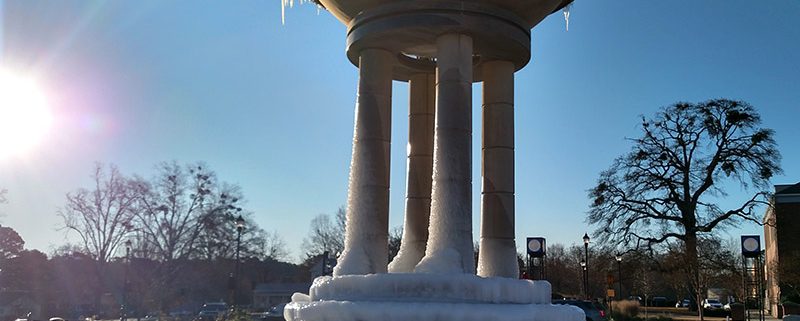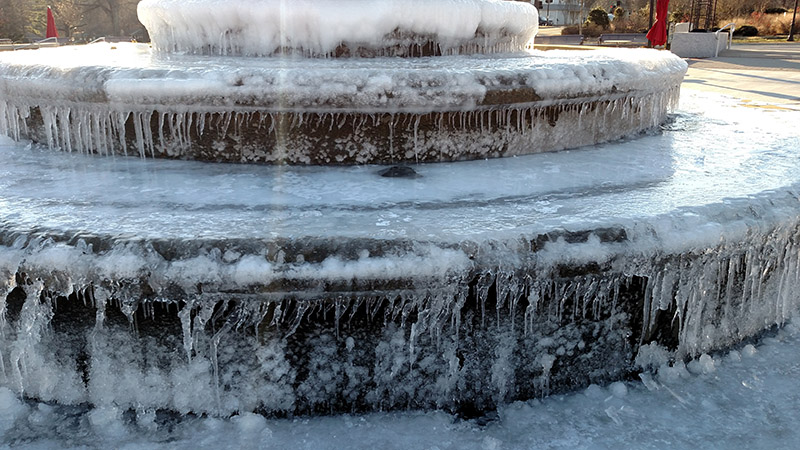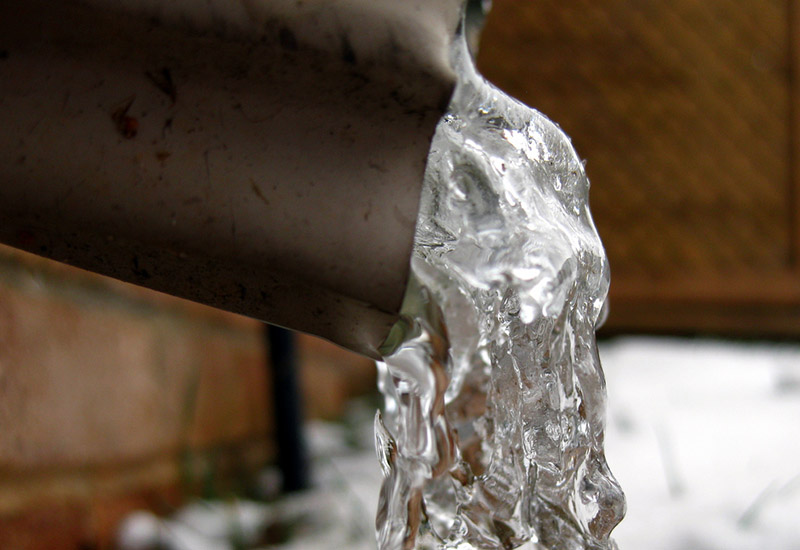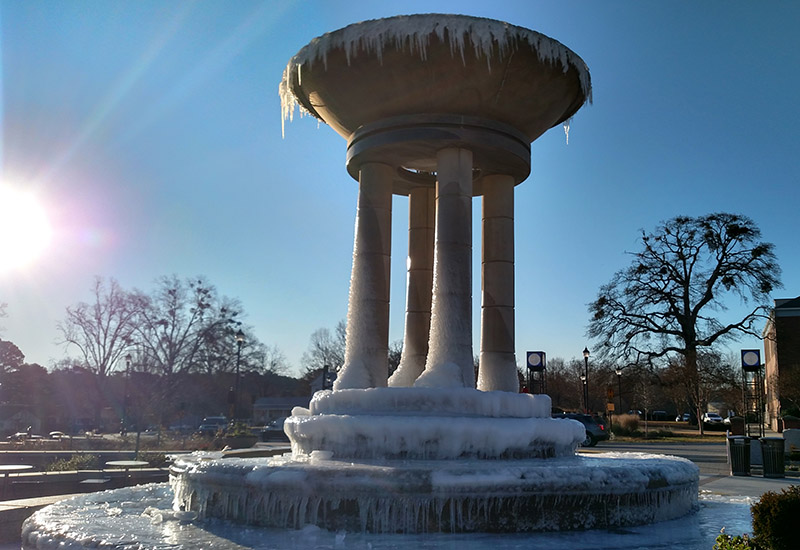Preventing Frozen Water Pipes in Cary
Cary, NC – With temperatures dropping below freezing this week and last, there have been reports frozen pipes and related problems in Cary. Here are some tips on how to make sure you keep your water flowing properly in your home or business.
Cold Start to 2018
Over this past week, a mix of low temperatures and strong winds have created freezing conditions in the Triangle. While this has resulted in some impressive visuals such as the frozen Downtown Cary fountain, it has also created problems for water utilities in town.
According to the Town of Cary, on Tuesday, January 2, 2017 alone, 20 residents have called to report problems related to frozen water pipes, such as leaks or no water flowing through their faucets. A stretch of North Harrison Avenue in Downtown Cary was closed due to a water main bursting on Tuesday. Cities such as Raleigh and Durham have had similar frozen pipe problems, with a water main burst on East Cabarrus Street in Downtown Raleigh Tuesday morning.
Water expands as it freezes so temperatures dropping puts pipes at higher risk. And with a Winter storm watch stretching from New England to Florida this week, Cary pipes may face more risks in coming days. Thursday and Friday, January 4 and 5, 2017, look particularly risky as wind speeds get into double digits.
Preventing Pipe Bursts and Freezing
Even if your water pipes do not burst when the cold weather comes in, a pipe freezing can create plenty of problems on its own.
The easiest ways to prevent freezing is to set your faucets to drip warm water at night when temperatures get the lowest. Additionally, keeping cabinets and drawers open lets the warm air circulate around the house. You can also keep your garage door open if your water pipes or supply are indoors. However, if your water pipes are in the garage, then make sure your garage door is closed and your garage is well insulated.
If you can shut off the flow of water to outdoor faucets or even drain the water from them, that is also a good way to limit the amount of pipe that can freeze.
Other preventative measures include wrapping heat cables or heating tape around any exposed water pipes you can access. Much like space heaters, these products can be dangerous if used improperly so make sure you not only get heating materials approved by independent reviewers, but also make sure they are meant for the right location (interior vs. exterior) and follow all instructions.
This is also a good time to make sure you do not have leaks and gaps in your house where heating can escape or cold air can leak in. You can also check that your home is properly insulated, including stretches of insulation around where you keep your water pipes and water storage.
If you do have frozen pipes and water is not flowing, keep faucets open and call public utilities or a plumber. Do not try and thaw your pipes with flames and be careful about any electrical appliances near ice. If you have pipes burst or leaking, turn off the water valve before contacting someone to help you. If your problem is bad enough that your home is flooding, call 911.
Story by Michael Papich. Photos by Michael Papich and Scott Akerman.






